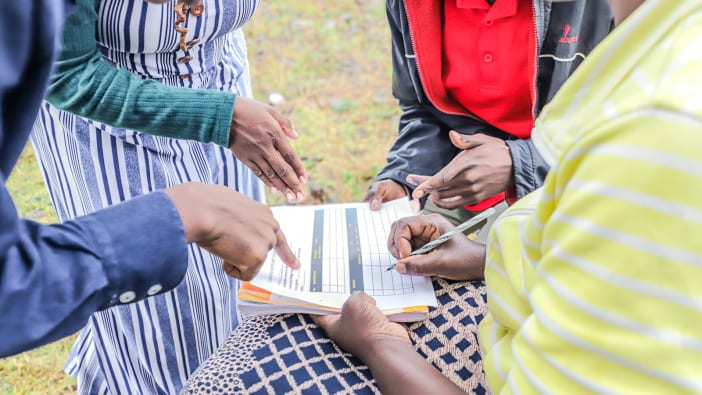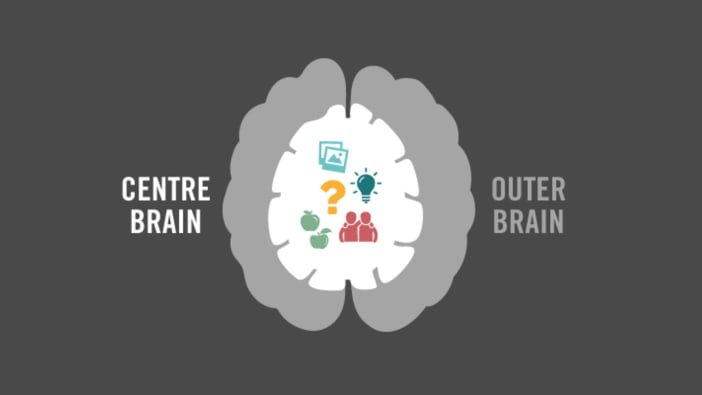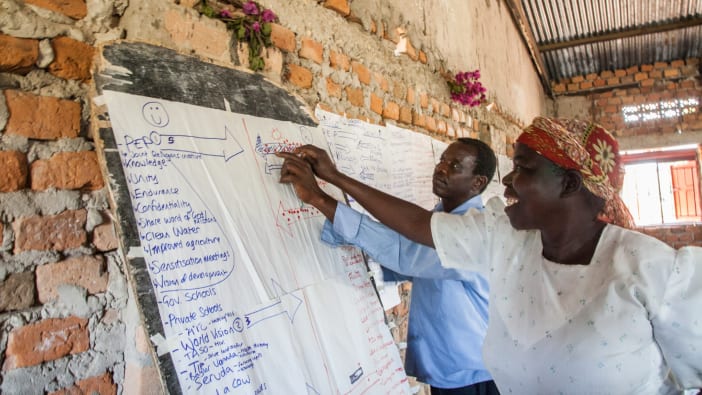Brian Polkinghorne wrote with an interesting response to Issue 29. Here are some of the points he made, together with comments from Simon Batchelor (who wrote the opening article in Issue 29).
Brian: Thank you for another stimulating edition of Footsteps, although the December issue on PLA raised more questions for me than it answered. My experience tells me that ‘bottom-up’ development is as powerless as ‘topdown’ development is elitist. As an ordained minister with training in agriculture, I have worked with Tanzanian development issues for over 14 years and recently handed over a most challenging reforestation project to the people I trained. In the editorial, your first sentence is about the real value of each and every individual having the opportunity to share their views. My experience is that it is most difficult for women to share meaningfully, or to get their views heard.
Simon: It is precisely the aim of a true participatory approach to help the marginalised make their views known. If women cannot speak publicly in society, then new and imaginative approaches must be found to find out their point of view. Previously, so-called experts have spoken on behalf of women, but often with values that are completely different from those found in the village. Actions have been mis-understood causing more harm than good and sometimes even conflict. We are called to be peace makers. In the past ‘development experts’ have thought of solutions before the people have recognised the root causes of their problems, so when outside intervention leaves, the village returns to its old ways because they did not own the changes.
Brian: The villages that I know well are full of personal rivalry and conflicts, traditional power structures and social class systems that severely limit the potential of real participation.
Simon: We must acknowledge that mankind is fallen, and selfishness can be found in any society. Participatory approaches often involve public accountability, and in an imperfect society, public accountability is one of the few ways to reduce corruption and conflict.
Brian: I fully agree that sustainable development can only come from community action – but I’m not so sure that the action must always and only be ‘begun’ by the community itself. For example, when you have a village with inhabitants who have only ever travelled one or two days’ bicycle ride from where they were born, have no newspapers, few radios, a very low level of education and an even lower level of environmental awareness and a government that has always told them what to think and to do – how are they supposed to get ideas and stimulation to see the way out of their predicament?
I believe that there needs to be an input from the outside. Then maybe you can start to see some signs of sustainable development taking place.
Simon: The process begins with the people seeing a need or feeling that something is wrong. It is correct for you to say that they may not have the life experience to know the root cause of that problem, or to know of a reasonable solution. But that does not stop us beginning with their own analysis of their problems. PLA then animates the society to search for the root cause and the solution.
Brian: If each society is so different in its sociological, economic, political and spiritual value systems, how can any one approach like PLA push the right buttons in more than a few societies to help people take the next step in their development agendas? For example, for the vast majority of rural Africans I’ll guarantee that PLA based on mapping and transects will be unhelpful because people don’t use maps here. Let’s encourage more experimentation and diversity. Why did God fill the world with so many varied forms and styles of life? Surely he too is in favour of diversity!
Simon: I agree that not all tools are applicable to all societies. In Cambodia, villagers themselves have created new games to communicate principles to each other. They have created new tools to ensure that everyone participates and understands. We should not confuse the tools with the principles of participation. We work towards people growing in their understanding of life and of the true nature of the universe, and in their creative skills. What better mechanism is there to encourage diversity than being involved in the process of identifying a problem and working together to find the solution?









